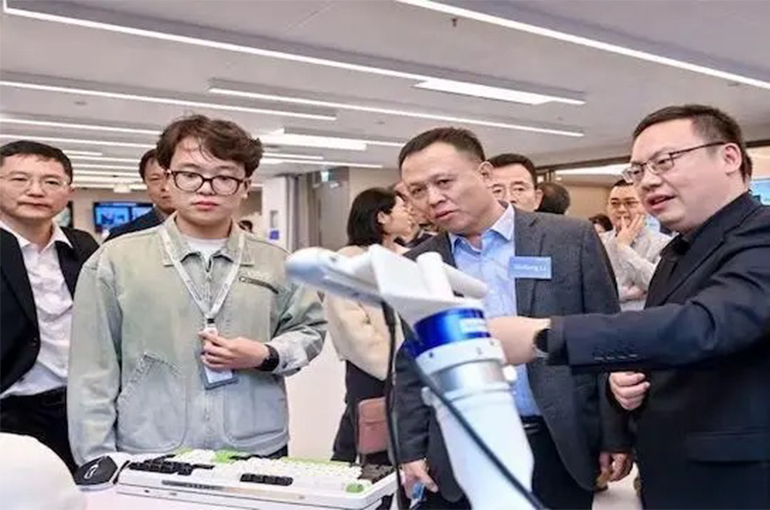 Chinese Academy's AI Lab Unveils CARES Copilot 2.0 Surgery Assistant
Chinese Academy's AI Lab Unveils CARES Copilot 2.0 Surgery Assistant(Yicai) Nov. 29 -- An artificial intelligence laboratory under the Chinese Academy of Sciences has launched the second edition of the CARES Copilot, an advanced machine-learning model designed to support surgical procedures.
The CARES Copilot Embodied Intelligent Surgical AI Large Model 2.0 aims to streamline intricate surgical processes, enabling more efficient planning, Liu Hongbin, director of the Centre for Artificial Intelligence and Robotics, Hong Kong Institute of Science & Innovation, CAS, said to Yicai during a recent symposium. Previously, doctors faced the complex task of consulting extensive data and managing numerous surgical details, from tumor location to incision techniques, he further explained.
"We hope to leverage large language models to guide medical professionals and integrate their capabilities with robotic applications," Liu said. He illustrated this by describing how a robot could adjust endoscopic views, allowing surgeons to multitask more effectively.
AI proves particularly beneficial for early-career surgeons who may struggle with positioning or navigation. The model can learn and understand surgical procedures, locate and segment key anatomical structures, mark potential danger zones, and provide step-by-step guidance, Liu added.
In his view, the goal of AI is to enhance, not replace, human capabilities—effectively providing doctors with "superhuman" abilities through seamless human-robot collaboration that creates a more efficient and safe surgical environment.
However, Liu also acknowledged that the surgical AI large model industry remains in its infancy, with significant developmental challenges ahead before achieving mature human-robot interaction in clinical settings.
Editor: Emmi Laine